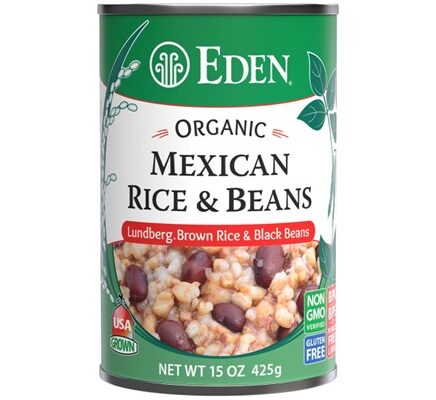Organic food is often an option seen on many grocery store shelves, but why do people choose it over conventional products, and what are its health benefits?
There are many ways that organic foods can benefit your health. They are produced naturally with no artificial chemicals and pesticides; they don’t carry the heightened risk of health problems or allergic reactions that could occur when consuming traditionally grown produce. Not to mention, they taste great, too!
Eden Foods discusses more about the benefits of organic foods below.
What is Organic Food
Organic foods are produced, manufactured, and processed without the use of any pesticides, GMOs, artificial preservatives or chemical fertilizers. In the case of animal products, there are no hormones or antibiotics given to the livestock.
When it is processed and packaged, the food also needs to be free of any additives such as coloring, flavoring, and artificial enhancers like synthetic sweeteners or MSG.
Organic Foods Don’t Have Harsh Chemicals
Although the effects aren’t immediately felt when consumed, trace amounts of the chemicals that go into non-organic food production are ingested into our bodies and build up to troublesome levels over time.
This can then lead to chronic health conditions such as cardiovascular and neurological problems. Some preservatives and colorings can also cause allergic reactions or increase the risk of developing cancer.
By eating organic foods, this potential danger is mitigated, as they cannot contain these chemicals in the first place.
Organics are Great for the Environment
As they are not grown with heavy chemicals, organic food lacks that negative impact on the environment. Pesticides and other pollutants can’t leech into the soil and run into waterways, spreading across wide areas.
Animals used in the production of food also benefit from organic practices, as they aren’t subjected to growth hormones or antibiotics whilst being raised and looked after.
Eating Organic Can Aid Healthy Weight Management
Studies have shown that organic foods can decrease the likelihood of obesity. This is likely due to the fact that they contain higher levels of nutrients, and that they are often smaller than non-organic produce, leading to a lower calorie intake.

Organic has Better Quality and Taste
Some people also report that organic food simply tastes better! As organic foods are produced using natural methods, and with higher quality feed and materials, the taste is as natural as it can possibly be without any synthetic enhancements.
The soil used in organic farming is often much richer in minerals and nutrients, which transfers into the produce as it grows, allowing consumers to reap the benefits not only for their health, but for the flavor as well.
They Are Nutrient-Rich
Organic foods may have a higher price tag, but the trade-off for this is that the U.S. Soil Association has demonstrated that organic fruits and vegetables have much higher vitamin and mineral content than conventional products.
This means that while consumers may pay more for these items, they are getting many more nutritional benefits from the food, including a higher quantity of antioxidants that help to fight off certain cancers.
Going Organic
For anyone considering making the transition to organic produce, a good place to start is to find out what is in season. In-season fruits and veggies are going to be the freshest, with the best positive impact on one’s diet when it comes to the nutrients that they provide.












